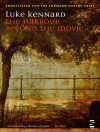The Post Office Rabindranath Tagore – The Post office is a story of an eight-year-old boy who is terminally ill and is confined inside his house by the family physician. He sees the outside world only through his window. He talks to the passers-by and engages them in eager conversations. Flower seller’s daughter Sudha has made a promise of bringing flowers for him. Watchman tells him that the big building with the flag is the king’s new Post office. He imagines that he will receive a letter from the King and based on that he constructs an imaginary world for himself. He dreams of being the royal postman and awaits the king’s visit.
About the author
Awarded the Nobel Prize in Literature in 1913 ‘because of his profoundly sensitive, fresh and beautiful verse, by which, with consummate skill, he has made his poetic thought, expressed in his own English words, a part of the literature of the West.’
Tagore modernised Bengali art by spurning rigid classical forms and resisting linguistic strictures. His novels, stories, songs, dance-dramas, and essays spoke to topics political and personal. Gitanjali (Song Offerings), Gora (Fair-Faced), and Ghare-Baire (The Home and the World) are his best-known works, and his verse, short stories, and novels were acclaimed—or panned—for their lyricism, colloquialism, naturalism, and unnatural contemplation. His compositions were chosen by two nations as national anthems: India’s Jana Gana Mana and Bangladesh’s Amar Shonar Bangla.












